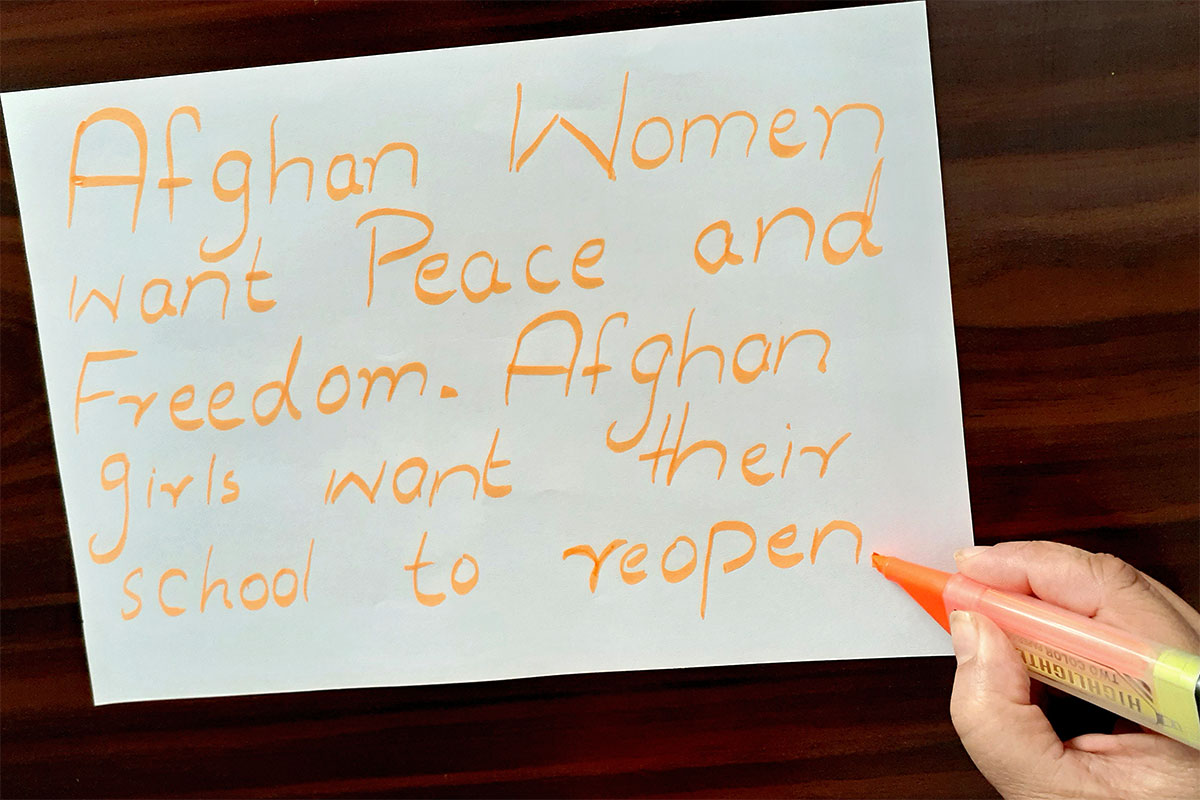Pushing forward: Resisting systemic violence in Afghanistan
Malalay* is an Afghan activist working to support and restore the rights of women and girls affected by family and social violence in Afghanistan. Since the Taliban’s takeover last August, her work has gotten significantly more difficult—and more dangerous.

Nowhere to turn
It’s been over a year since the Taliban seized control of Afghanistan, reestablishing the regressive regime that had collapsed nearly two decades earlier. Though the group originally promised protections for women’s rights within Sharia law—including the right to work and to study—violations have steadily mounted.
“Women and girls are deprived of their basic rights,” says Malalay. “The right to work, the right to education, and other women’s rights such as freedom and self-sufficiency have been taken away.”
Deprived of political power and barred from most jobs, women are required to cover their faces in public and have been instructed to remain in their homes except in cases of necessity. Girls have been banned from attending school past the sixth grade.
The systematic exclusion of women and girls from public life is itself violence, Malalay stresses. It also leaves them highly susceptible to further abuse in both public and private, without the legal or economic means to seek justice or protection.
“[Women] have always been subjected to violence,” Malalay notes—but now, under the Taliban, they have nowhere to turn: “All the institutions that work and operate to protect women's rights have stopped activities and closed.”
“[This] is a concern for the whole world,” Malalay emphasizes.
Strive and fight
Malalay has been fighting for gender equality in Afghanistan since long before last August. “[Afghan] women and girls [have] always [been] deprived of their constitutional and religious rights,” she says.
Ending violence against Afghan women, Malalay emphasizes, will require women’s economic empowerment and access to law and justice, along with litigation at the national and international level to protect women’s rights.
Malalay calls on the international community to provide “constant and stable support” for the women and girls of Afghanistan. Keep pushing, she says, until “justice is done, social security is provided and our society reaches prosperity and sustainable peace”.
She urges women’s rights activists not to give up: “Always and in any situation, strive and fight for equal rights and gender equality.”
Realising the Dream
Ending gender-based violence, Malalay emphasizes, would make the world a better place for everyone. “A world free of violence will be a healthy, successful and stable society,” she says, where men and women have equal rights, equal access to justice and “an equal role in decisions at the family and community level”.
“This,” Malalay says, “[would] be the dream of every woman in the whole world.”









